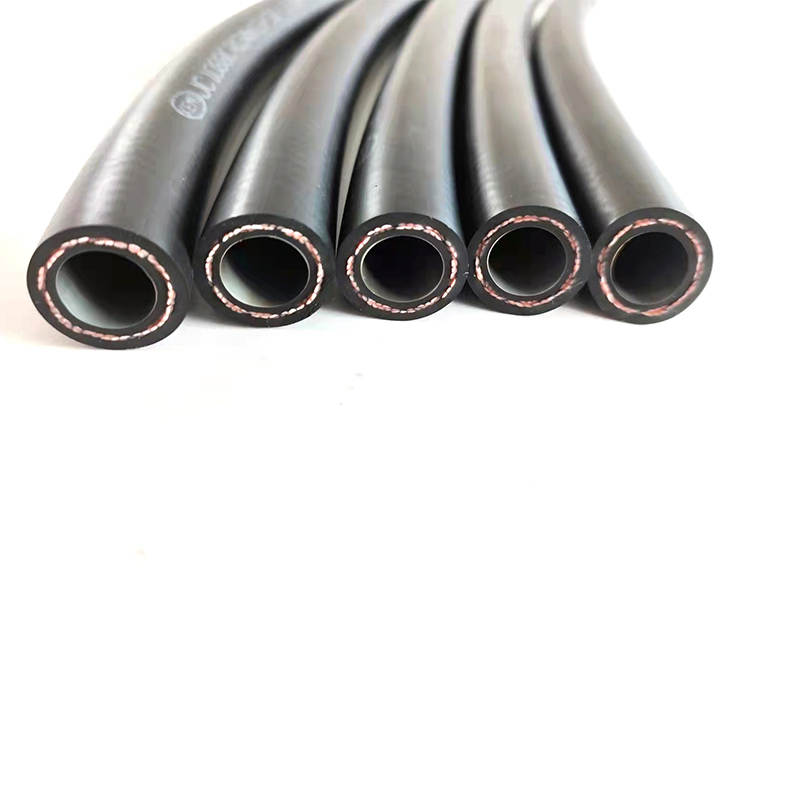Ethanol Rated Fuel Line - High-Performance Solutions for Fuel Systems
Sep . 06, 2024 16:10 Back to list
Ethanol Rated Fuel Line - High-Performance Solutions for Fuel Systems
Understanding Ethanol Rated Fuel Lines
As the automotive industry continues to evolve, the integration of alternative fuels, particularly ethanol-blended gasoline, has become increasingly prevalent. Ethanol, primarily derived from corn and other plant materials, is celebrated for its renewable nature and reduced greenhouse gas emissions. However, using ethanol-blended fuels (typically containing 10% to 85% ethanol) necessitates special considerations, especially regarding fuel lines. Therefore, understanding ethanol-rated fuel lines is critical for both vehicle performance and maintenance.
What Are Ethanol Rated Fuel Lines?
Fuel lines are crucial components in any vehicle's fuel system, transporting gasoline from the tank to the engine. Ethanol-rated fuel lines are specifically designed to withstand the unique chemical properties of ethanol, which can be more corrosive than traditional gasoline. Regular fuel lines are often made of materials that may degrade, swell, or crack when exposed to ethanol, leading to performance issues and potential safety hazards.
Ethanol-rated fuel lines are typically constructed from materials such as fluoropolymer or high-quality rubber that can resist the effects of ethanol. These materials help prevent common issues like fuel leaks, which can not only harm the vehicle but also pose environmental risks. Moreover, ethanol-rated fuel lines are tested rigorously to ensure they can handle the increased pressures associated with modern fuel injection systems.
Why Use Ethanol Rated Fuel Lines?
1. Compatibility With the rise in flex-fuel vehicles that can operate on varying levels of ethanol, having compatible fuel lines is essential. Using non-rated lines with high ethanol concentrations can lead to premature failure and decreased performance.
ethanol rated fuel line

2. Safety Fuel leaks can result in fires or explosions, making safety a paramount concern. By using ethanol-rated fuel lines, vehicle owners reduce the risk of potentially catastrophic failures.
3. Efficiency Ethanol has a different combustion profile compared to gasoline, which can affect engine tuning and performance. Ethanol-rated fuel lines help ensure that the fuel delivery system operates efficiently, allowing the engine to perform optimally.
4. Long-Term Cost Savings Investing in high-quality, ethanol-rated fuel lines can ultimately save money by extending the lifespan of the fuel system components and reducing the risk of costly repairs associated with fuel leaks or degradation.
Maintenance and Replacement
Regular maintenance is vital for all vehicle components, including fuel lines. Vehicle owners should periodically inspect fuel lines for signs of wear, such as cracking, swelling, or discoloration. If using ethanol-blended fuels, it’s especially important to ensure that fuel lines are rated for ethanol to prevent issues associated with deterioration.
In conclusion, as the use of ethanol-blended fuels becomes increasingly mainstream, understanding the importance of ethanol-rated fuel lines is crucial for vehicle owners. These specialized lines are designed to handle the unique stresses of ethanol, offering benefits like enhanced safety, efficiency, and compatibility. By investing in quality fuel lines and practicing regular maintenance, vehicle owners can enjoy the advantages of ethanol fuels while minimizing risks and maximizing performance. Embracing this evolution in automotive fuel not only supports individual vehicle health but also contributes to broader environmental goals.
